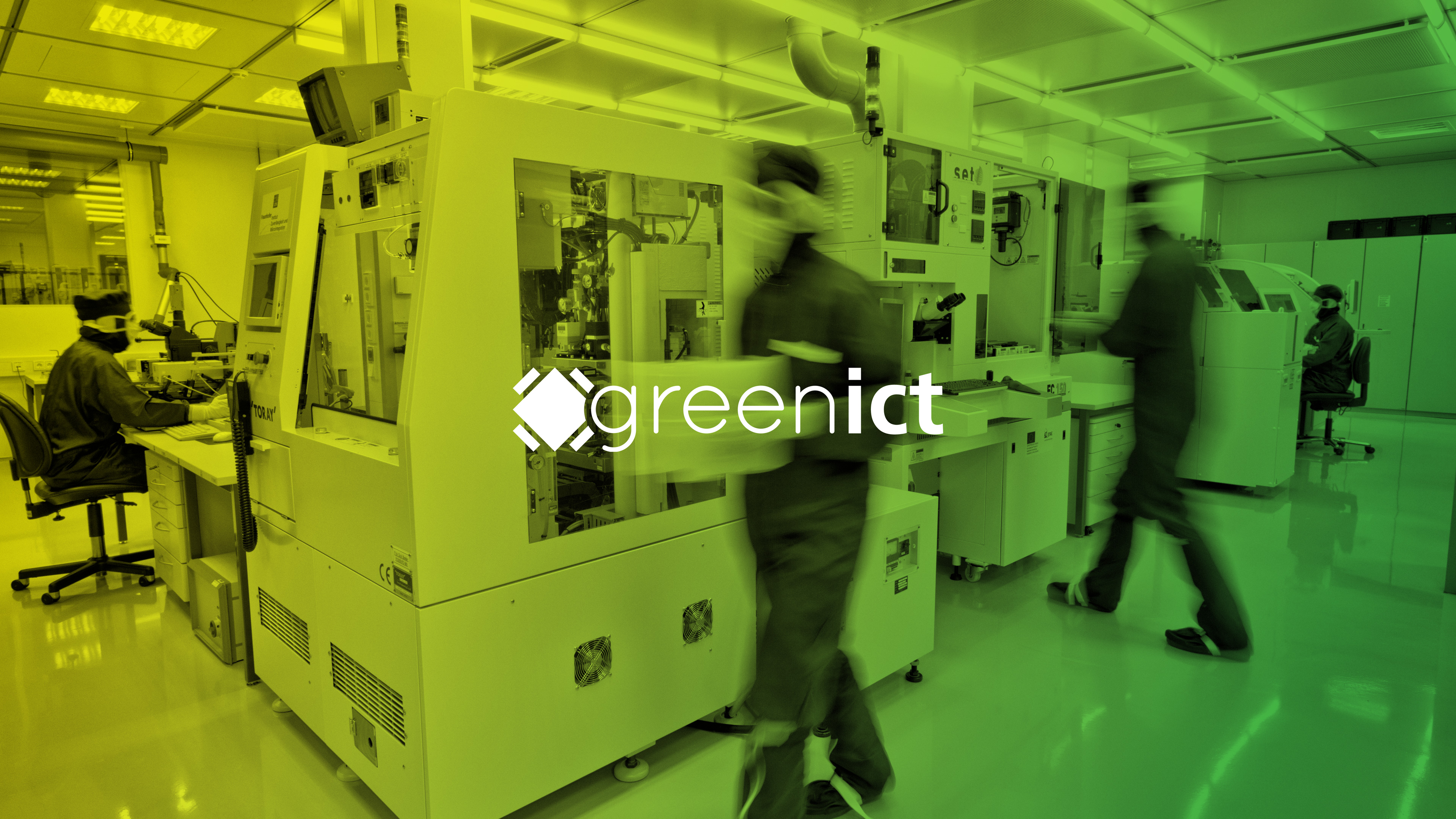Electronics for energy-saving information and communication technology (ICT)
Fraunhofer IZM is part of the »Green ICT @ FMD« competence center and has been commissioned by the Federal Ministry of Education and Research (BMBF) together with the project partners and the Research Fab Microelectronics Germany (FMD) to determine the energy requirements and life cycle assessment of electronic products and information and communication technology infrastructures for Germany:
- Hub 1 - Sensor edge cloud systems
- Hub 2 - Energy-saving communication infrastructures
- Hub 3 - Resource-optimized electronics production
The aim is to show how resource and energy consumption in semiconductor production can be optimized through innovative and reliable assembly and connection technologies, from the selection of raw materials for the production of the semiconductor substrate to chip and PCB design, routing and board integration.
The tasks of Fraunhofer IZM and Fraunhofer IZM-ASSID include, among others:
- Energy-efficient antenna subsystems for 5G mm-waves: Provision of the antenna measurement chamber and preparation of the interfaces for 5G mm-wave subsystems for detailed characterization and optimization of the radiation pattern as well as creation of impedance and radiation patterns
- Research and selection of data to create a life cycle assessment database for RF and optical components. The aim is to improve the database for assessing the environmental potential of new communication technologies and their hardware implementation.
- Design and characterization of new optical transmission systems with energy-saving potential and high transmission rates for 5G and 6G applications (optical xHaul networks) - radio-over-fibre systems (RoF)
- Development and implementation of a cleaning process for the reuse of carrier wafers. The aim is to extend the service life of glass carrier wafers and reduce CO2 emissions during production. 300 mm glass wafers are used as carriers for thin wafers. After separation or detachment, carrier wafers have so far been disposed of.
- Establishment of alternative cleaning methods in wet chemistry for wafer level packaging (WPL), which reduce the use of environmentally harmful chemicals and establish material cycles or extend existing ones.
The Green ICT Competence Center at the Research Fab Microelectronics Germany (»Green ICT @ FMD«) is a central point of contact for sustainable electronics. The Federal Ministry of Education and Research is supporting the project as part of the Green ICT initiative, which is part of the German government's 2030 climate protection program.
 Fraunhofer Institute for Reliability and Microintegration IZM
Fraunhofer Institute for Reliability and Microintegration IZM








